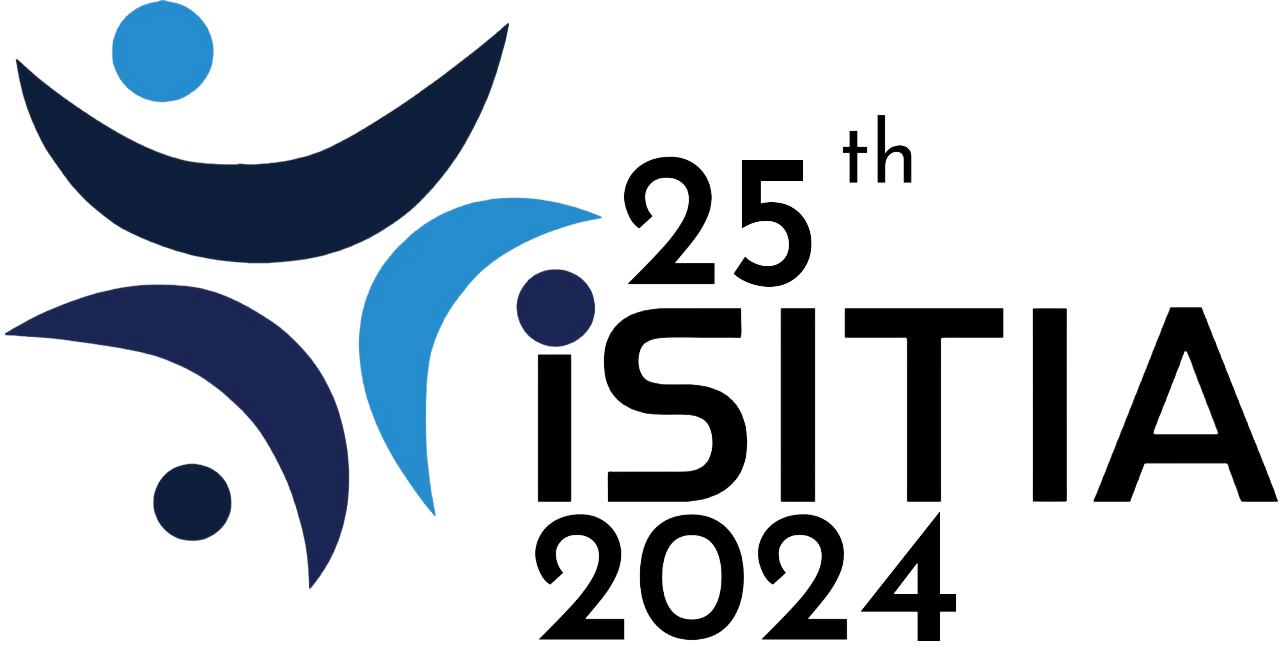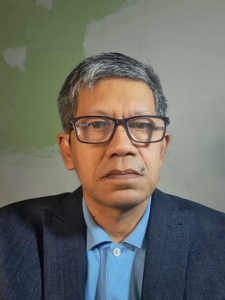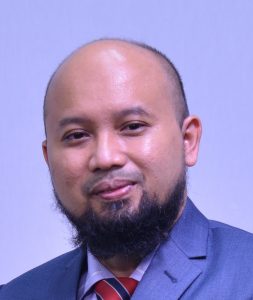Building National Competence in Quantum Information Science and Technology: Yes, We Can
Dr. Wirawan
Institut Teknologi Sepuluh Nopember
Abstract
Quantum computing and information science have progressed with tremendous speed in the last decade in both academia and industry, which will have deep impact in many areas: scientific computing, cryptography, simulation, and telecommunication. Actually, various architectures of quantum computers have been built using different kinds of technology, e.g., superconducting circuit, trapped ion, NMR, and photonic. Consequently, future engineers and scientists need to be prepared with this exciting development. However, there is a conspicuous lack of government policy and the current higher education curriculum with regard to quantum technology development, despite huge efforts, investment, and development already under way in other countries. It is widely recognized that teaching Quantum Computing in university-level Computer Science and Electrical Engineering programs is strategically important for workforce development along with technology development. In this talk, we will present a proposal for the development of a curriculum for quantum computing and information science, as well as a research roadmap in this area.
Biography
Wirawan received the Ir. degree in electrical engineering from ITS, in 1987, the DEA (Master) degree in image and signal processing from Polytech Nice Sophia – University of Cote d’Azur, France, in 1996, and the Ph.D. degree in signal and image processing Telecom ParisTech, France, in 2003. He is currently a lecturer at the Department of Electrical Engineering, ITS, since 1989. His research interests include statistical signal processing, wireless sensor networks, underwater acoustics, communication security, and video coding. He is a member of the IEEE.
ISITIA 2024 Keynote Speakers
Building Resilient Power Distribution System: Research Opportunities and Potential Industrial Collaboration
Prof. Hazlie Mokhlis
Universiti Malaya
Abstract
In recent years, extreme weather phenomena like windstorms, floods, and earthquakes have emerged as significant global threats. These events not only pose risks to human life but also wreak havoc on critical infrastructures such as electricity, water, gas supply, healthcare, communication, and transportation systems. Among these vital infrastructures, the electricity supply system, commonly referred to as the power system, stands out as the linchpin. Its failure can cascade into disruptions across all other sectors, potentially leading to dire consequences, such as loss of life in hospitals due to power outages. Recognizing the pivotal role of the electricity supply system, both power utilities and researchers have mobilized remarkable efforts toward enhancing its resilience. The overarching goal is to fortify the system against abrupt changes and expedite recovery following catastrophic events, thus ensuring maximum continuity of electricity supply. Within the realm of power systems, the distribution network holds particular promise for resilience enhancement. This discussion will delve into the concept of power system resilience, exploring research avenues and underscoring the imperative for industrial collaboration to bolster the resilience of distribution networks. Furthermore, an overview of prevailing climatic conditions that precipitate catastrophic events will be provided, elucidating the pressing need for a resilient power system.
Biography
Hazlie Mokhlis received the Bachelor of Engineering degree and Master of Engineering Science in Electrical Engineering from Universiti Malaya in 1999 and 2003 respectively. He received PhD degree from the University of Manchester in 2009. Currently, he is a Professor and Research Cluster Chairman (Innovative Industry & Sustainability Science) at Universiti Malaya. Hazlie is actively involved in research as a principal investigator in the area of Power & Energy Systems. He is the author and co-author of more than 300 publications with H-index of 44. Up to now, he had supervised to completion 38 PhD, and more than 60 Master students (Research & coursework). His outstanding research led him to be listed in the World’s Top 2% of Scientists by Stanford University in 2021, 2022, 2023. In 2021, he was awarded Top Research Scientist Malaysia (TRSM) by Academic Science Malaysia. Besides research, he is active in the development of Malaysian Standard related to Electrical power systems. Hazlie is Fellow IET, Professional Engineer in UK and Malaysia, and Senior Member IEEE. He was chairman of IEEE Power Energy Society, Malaysia Chapter (2020-2022). His current research interest focus on improving distribution system performance and its resiliency against extreme weather.
ISITIA 2024 Keynote Speakers
Applications of AI in Communication Systems and Industrial Collaborations
Prof. Wan-Jen Huang
National Sun Yat-sen University
Abstract
Artificial intelligence plays more and more essential roles in many applications, such as video analytics, knowledge graphs, ChatGPT, etc. In this talk, we will explore how AI-based algorithms help design transceivers in wireless communications systems, especially in 6G RIS-assisted MIMO systems. On the other hand, we will also share how we leverage the AI-based algorithm to collaborate with the antenna packaging industry to develop a speed testing tool for the mmWave Antenna-in Package.
Biography
Wan-Jen Huang received her Ph.D. degree in the Department of Electrical Engineering from the University of Southern California, CA, in 2008. She is currently working as an associate professor and the chairman of the Institute of Communications Engineering at the National Sun Yat-Sen University, Taiwan. Her research interests include signal estimation and detection and baseband signal processing of wireless communication systems such as massive MIMO, RIS, cooperative communications, etc.
ISITIA 2024 Keynote Speakers
Mitigation of Catastrophic Technology Failures due to Geomagnetic Storms
Dr. rer. nat. Teti Zubaidah, ST.MT.
Universitas Mataram
Abstract
The geomagnetic fields that protect the Earth are always changing due to the influence of solar activity, one of which is the Coronal Mass Ejection (CME). In mid-May 2024, CMEs have generated a geomagnetic storm which was recorded as the strongest storm in the last 20 years and caused significant impacts. Geomagnetic storms can cause serious disruption to Earth’s infrastructure and technological systems. Potential technological failures due to geomagnetic storms include satellite failures, disruptions to communication systems and internet networks, disruptions to electrical power systems, and navigation system failures. Based on observations from various platforms, it has been identified that the intensity of the Earth’s magnetic field is weakening, so that the impact of geomagnetic storms in the future is expected to become more widespread. For this reason, appropriate mitigation is needed so as not to result in a catastrophic disaster due to technological failures.
Biography
Teti Zubaidah hold bachelor and master degrees in electrical engineering, while her Doctorate degree is in geophysics with geomagnetic expertise. She obtained a Promotion Urkunde with the title of Magna Cum Laude from the University of Potsdam Germany in 2010. She conducted her doctoral research at Geomagnetic Section of GeoForschungsZentrum (GFZ) Potsdam Germany (2006-2010). Her special expertise is in the field of geomagnetic for earthquake/hazard mitigation, regional tectonic modeling and analysis, and geothermal energy exploration. She has initiated an international cooperation to establish the Lombok Geomagnetic Observatory and managing the Center of Excellence in Science and Technology on Geomagnetic (www.aemt-geomagnetic.org). Currently, she is as an expert in disaster mitigation and actively involved in professional organizations (IEEE, ASASI, and HIPTI Bencana); as well as an alumna of the DAAD scholarship holders.
1 December 2023
Paper Submission Page Open
7 April 2024
21 April 2024
04 May 2024
Paper Submission Due
01 May 2024
02 June 2024
Acceptance Notification
5 June 2024
24 June 2024
Final Manuscript Submission
21 June 2024
Early-Bird Registration Due
12 June 2024
28 June 2024
Registration Due
6 July 2024
Video Presentation Due
1 December 2023
Paper Submission Page Open
7 April 2024
21 April 2024
04 May 2024
Paper Submission Due
01 May 2024
02 June 2024
Acceptance Notification
5 June 2024
24 June 2024
Final Manuscript Submission
21 June 2024
Early-Bird Registration Due
12 June 2024
28 June 2024
Registration Due
6 July 2024
Video Presentation Due
This site uses cookies. Find out more about cookies and how you can refuse them.




